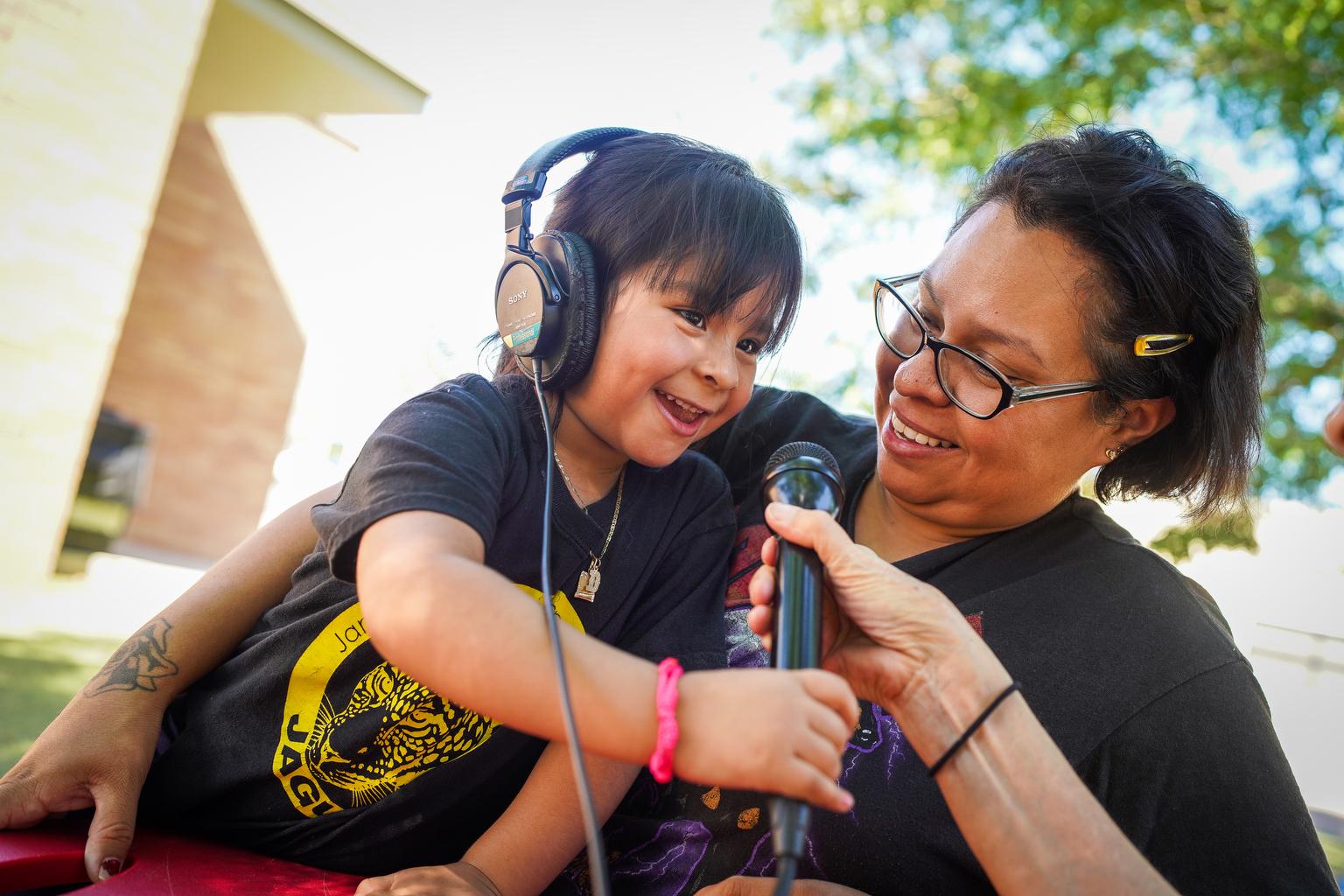
Right about now, a flock of 4-year-olds are about to get their first taste of universal preschool. Whoever’s signed up will get 15 or 30 hours of preschool paid for by a tax on some tobacco products. Colorado Public Radio reached out to a number of families with preschool-aged children to talk about the UPK program. We found that every family’s situation is significantly different.
Some families had seamless registration and matching experiences. Others had hopes dashed. Overwhelmingly, they said UPK is a step in the right direction and will provide some financial relief to families. But also, overwhelmingly, families described the UPK rollout as shaky and some criticized how it’s managed.
Here are some families’ experiences:
Let the juggling act begin
Rhema Zlaten was excited when she heard about UPK, hopeful her 4-year-old son Maceo could get 15 free hours at the church-based child care center where he was enrolled almost full time.
But in May, the Palisade center suddenly closed, and there aren’t a lot of child care options on the Western Slope. Zlaten found one place Maceo could go only on Fridays. Luckily, the family landed a spot at their local elementary school where Maceo’s siblings attend. It only offers half-day preschool but for Zlaten, that was better than nothing.
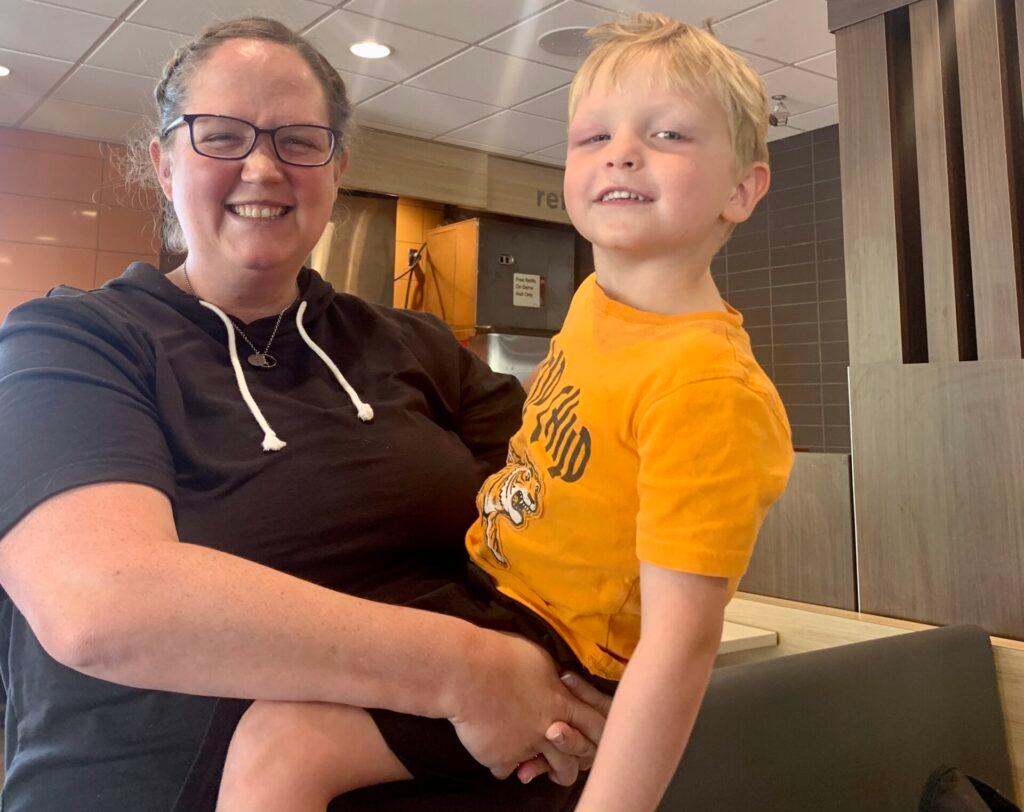
“It will be free,” she said. “We are definitely excited to start UPK this year. It is going to save us around $500 a month, which is just huge in our budget.”
Her job offers some flexibility with hours, and so … let the juggling act begin. Her mother and her late husband’s mom will help with transporting and care.
In the end, Zlaten felt her son was starting to get a bit bored at the private preschool. He was ready for more mental and social stimulation.
“I know (the district preschool) is going to be a lot more structured and the district has a lot more standards and resources to put towards preschool so it felt like a win-win. Even though we’re having to work out some kinks, I think it’s the right move for our family to figure out how to make preschool with UPK work.”
Savings will help other families, too
Rebecca Burris found the UPK application process straightforward, and she got matched to the Littleton preschool where she works.
“I am very thrilled about not having to pay the majority of his tuition,” she said. “One of the reasons I work where I do is to get a discount on tuition. I am not sure how people afford child care otherwise.”
She’d assumed the preschool had a say in the matching and then learned otherwise. She said a friend who also works at the school — her preschooler was not matched there. Burris is relieved about the extra savings. Her husband was in an accident in June.
“I’m really pleased that I will be able to save some money in the fall to pay off those medical bills coming in.”
As a single mom with two children, Sarah Heiman said UPK gave her daughter a chance she otherwise wouldn’t have had. Right now, Heiman’s parents take care of her children. Her daughter will attend a Montessori preschool for half a day.
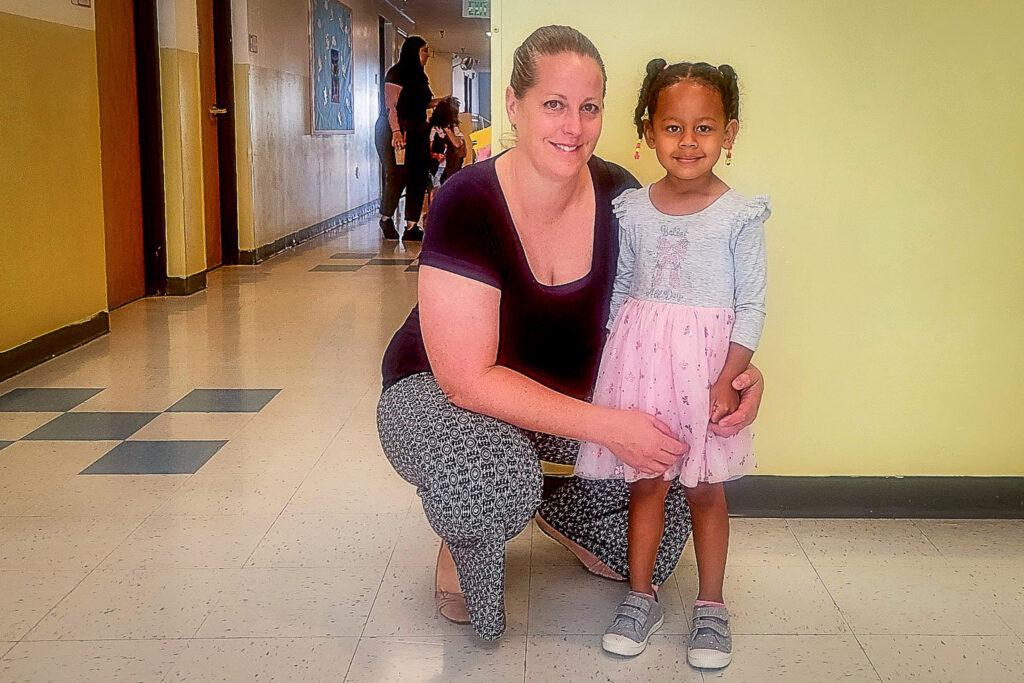
“I do think it’s pretty significant the amount of money that I’m going to save by doing this,” she said. “I hope it will benefit a lot of students who wouldn’t get the services or that early intervention, they have the opportunity (now) for that.”
30 hours a relief to parents of special needs children
When Rebecca Kallemeyn saw a news report that 11,000 students (now it’s 9,000) who qualified for 30 hours of free universal preschool were going to be bumped back to 15, her heart stopped.
“This definitely caused a Friday morning panic,” said the Longmont mother. Her son Elliot, 4, has a rare metabolic disorder that delays his walking and impairs his speech.
She called about 12 different people in various offices and finally learned that because he was previously enrolled in the St. Vrain Valley School District through Child Find for special education services and the district offers full-time preschool, he was still good for the 30 hours.
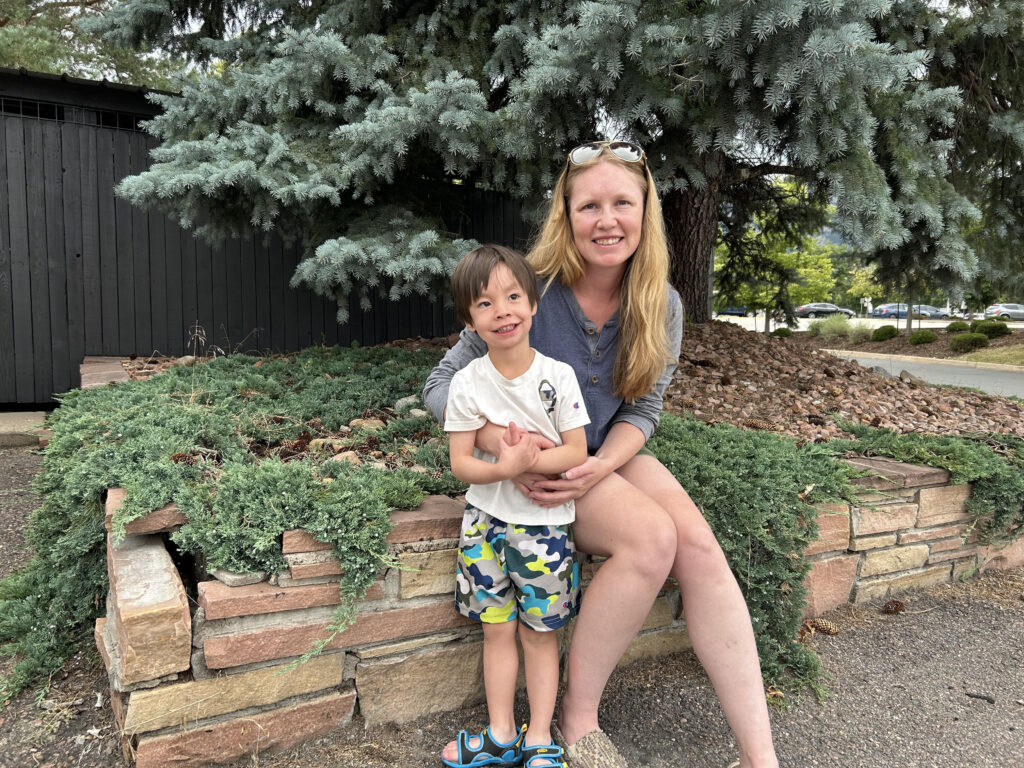
“The whole team there worked really hard to make sure we all knew we had to apply, knew how to list what we wanted.”
The money the family will save through UPK will allow them to contribute more to their son’s special savings accounts and trusts for individuals with disabilities.
“It will be a relief not to have the payments,” she said. “It’ll essentially help us save for his future and also get a little ahead on our mortgage, and honestly you know, retirement at our age.”
Joy Waughtal’s son Sully, 4, sits watching his teammates play soccer. He’s trying to decide if he feels like going back onto the field. A coach sits talking with him quietly.
The family qualifies for 30 hours of UPK as part of Sully's special education plan at the Sewall Child Development Center, which provides early education and therapeutic support for young children of all abilities.
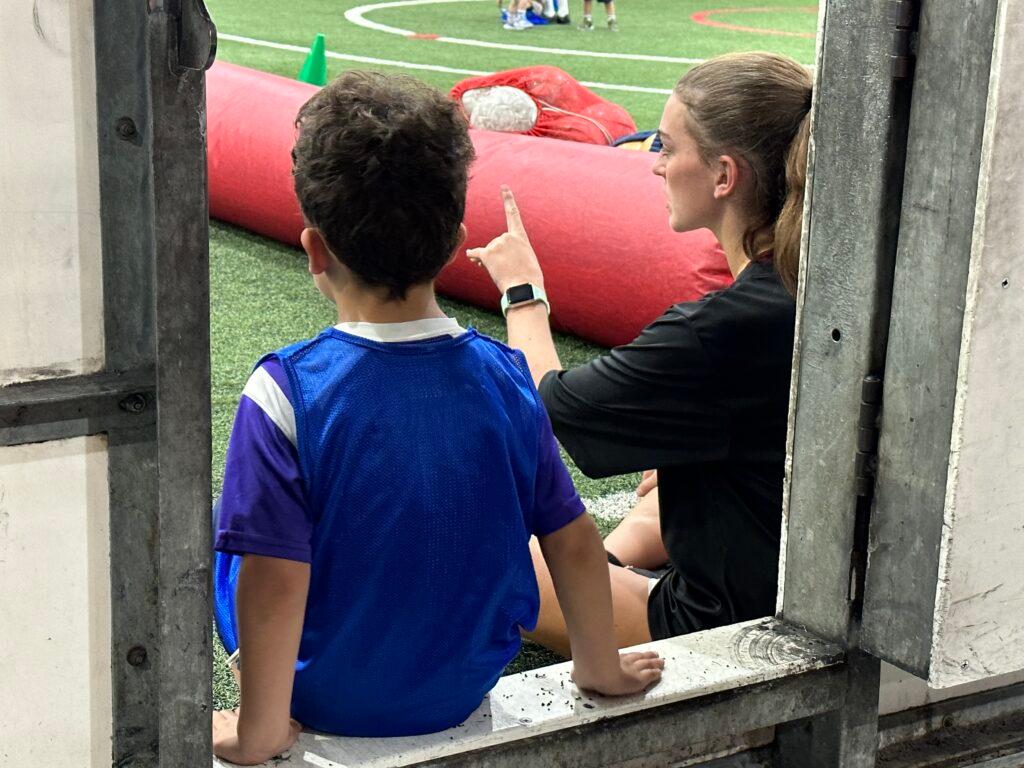
She, too, was scared she’d lose the extra 15 hours but because the family is low-income, she still qualifies.
“The difference between 30 hours and 15 hours is huge,” she said. “Any kind of financial help is wonderful and makes a difference for our family,” she said. “It definitely allows us to pay off more bills.”
Waughtal has seen Sully improve leaps and bounds since he enrolled at Sewall, especially his social skills because his cohort was born just before the pandemic.
“I feel like he's much more prepared to succeed in elementary school because he's had the preschool (as a 3-year-old) experience,” she said.
And for money the family is saving on Sully’s school, Waughtal can maybe afford to enroll her 1.5-year-old daughter in more hours of child care.
“It's been wonderful, and we're really glad for our social circles too. Everybody has been talking about it (UPK).”
State’s change threw other families into the lurch
Originally, if families had one of these qualifying factors – low-income, having a special education plan, homeless, in foster care, or a dual language learner – they’d get priority for 30 hours.
Carly Sargent-Knudson’s 4-year-old daughter has an IEP for speech issues. She’s received services through the Boulder Valley School District's Child Find program since she was 2, and has attended preschool since the age of 3. Sargent-Knudson was thrilled when they learned their daughter qualified for 30 hours.
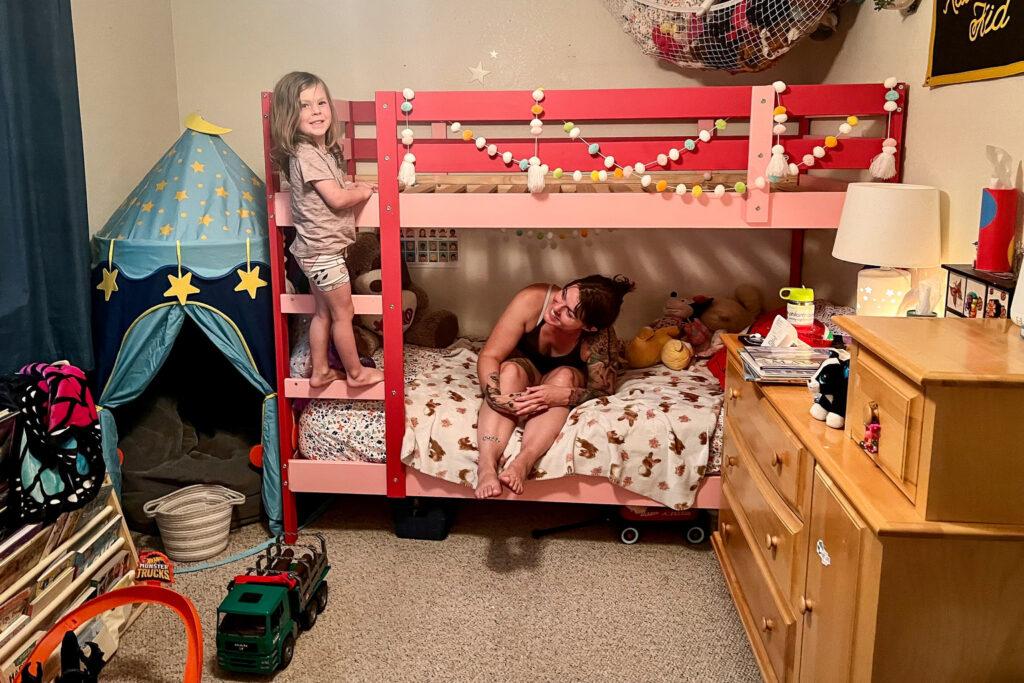
It meant “continuity, familiarity, keeping the kiddo with cohorts that she's familiar with and really truly preparing our 4-year-old for kindergarten.”
But the state changed the rules when it realized there wasn’t enough money. Families had to be low income and one of the other qualifying factors to get full-day. Sargent-Knudson was one of 9,000 families who fell off the list for full-day learning. Sargent-Knudson and their husband, one works at a non-profit and one’s a teacher, are upset.
“They made promises to parents, school districts, and private providers and now they’re changing their word,” they said.
Sargent-Knudson is trying to decide what to do. Their daughter’s been at the district preschool since she was three. But because it doesn’t offer full time preschool and the family needs extended hours, “It would be cheaper for me to send her to a private preschool at this point.”
Some families left out of the loop on UPK
Crystal Oropeza hadn’t heard of UPK.
But after her sister introduced her to the Jamaica Child Development Center, her son, now in elementary school, got some help with speech therapy. She learned from the Aurora Public Schools preschool that her 4-year-old daughter, Dayana, qualified for 30 free hours.
“I’m always having issues with technology and they (school staff) just told me these are the steps, follow them and voila … I enrolled her with no problems,” she said.
If there wasn’t UPK, Oropeza said Dayana would probably be at home with her, not developing social and English skills. Oropeza said she herself speaks a mixture of English and Spanish and she doesn’t want that for her daughter.
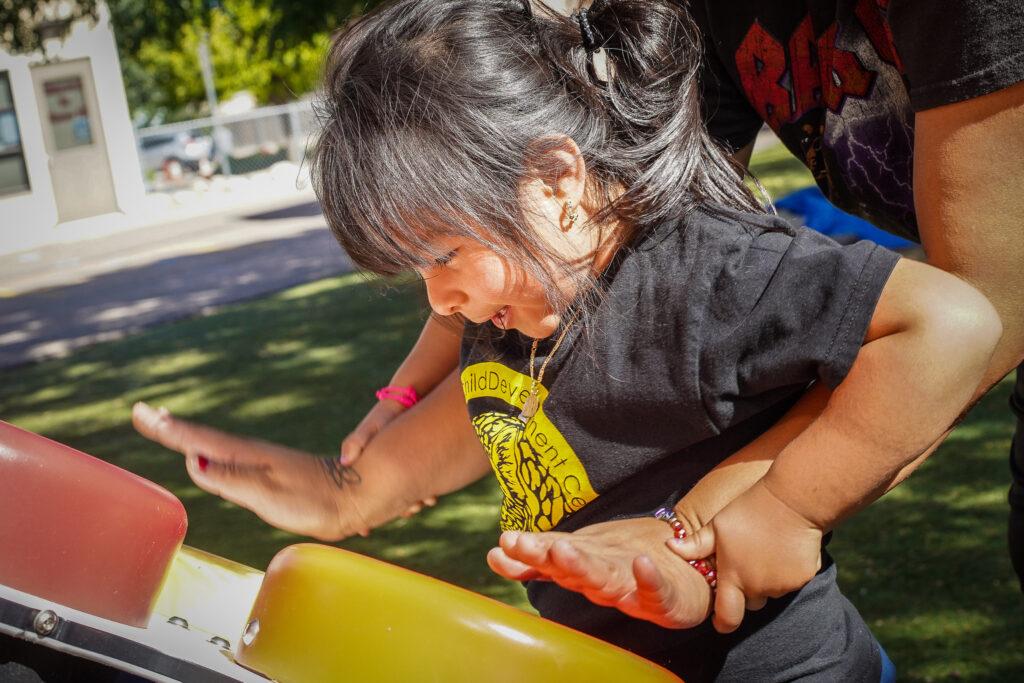
“I want her to speak her full English, and (separately) her full Spanish,” she said. “It will help her to better grasp the literature, way better than what I did. The way she is – bubbly, energetic and wanting to learn and observe - it’s probably going to help her say, ‘I’m going to take this kindergarten world by (storm).”
Oropeza’s husband works in construction, and she said the family wouldn’t have been able to afford full-time preschool.
“I am thankful for them for having us not pay too much money or no money at all.”
She thinks there are many families that still don’t know about UPK.
For parents who work long hours, subsidy not nearly enough
Don’t get Liz Waltz-Geib wrong: She is grateful for the UPK assistance. But the whopping amount she and her husband pay for childcare for two children – about $45,000 a year – the 15-hour subsidy they’ll get for their 4-year old will make a small dent.
When her husband was out of work during the pandemic, the family racked up credit card debt. He’s employed now as a teacher, but child care costs “his entire salary!” Waltz Geib exclaimed.
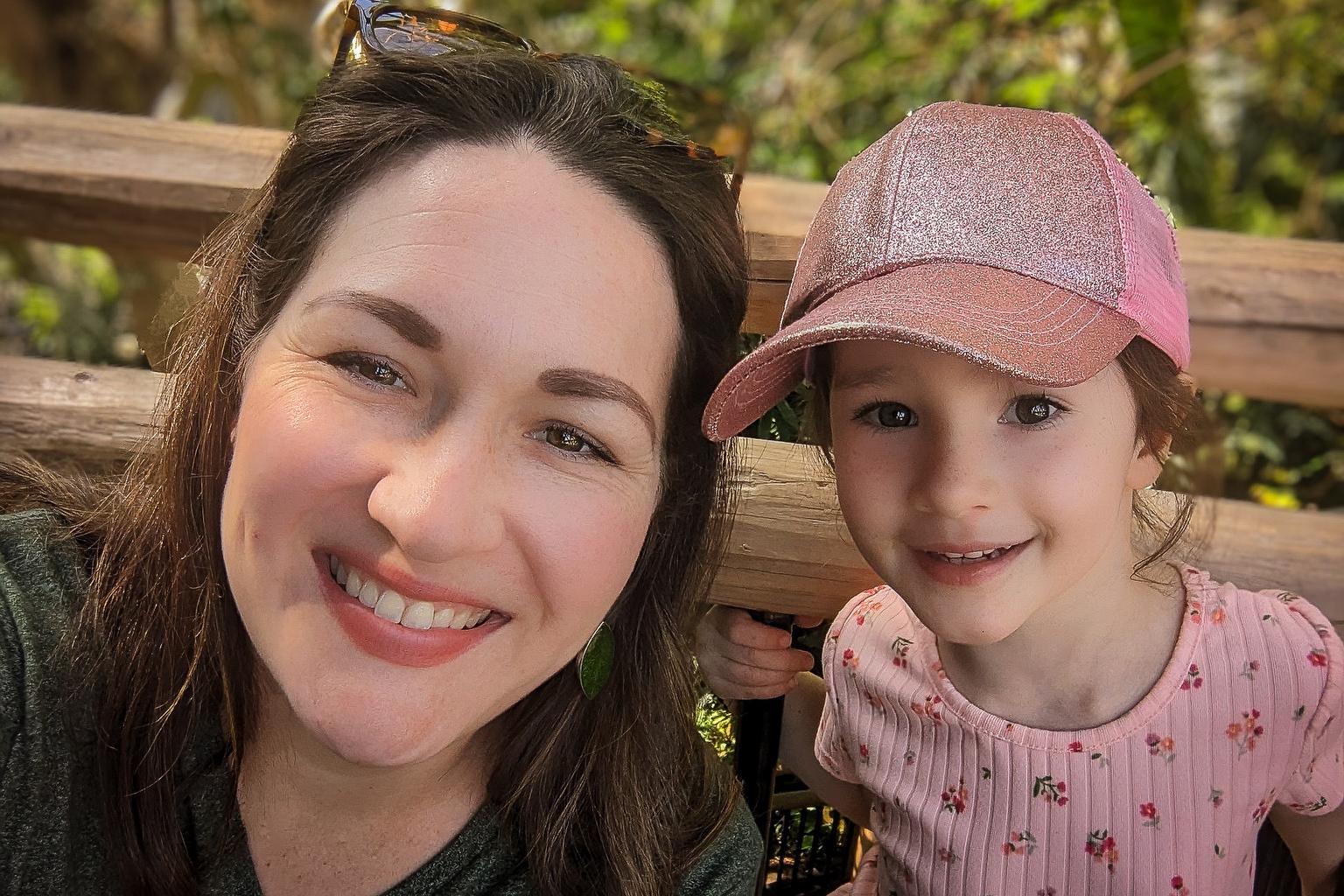
As the family waited to see if they’d be matched with the center they’d waited two years to get into when the kids were younger, it was stressful.
“So much could go wrong, maybe we’ll lose our spot,” she thought. “And we didn’t have a backup. It’s the only place we matched.”
Like other parents, she believes there are much more efficient ways UPK could be structured and managed. She saw a lot of turmoil on “mom” Facebook groups and thought, “Clearly something is not working.”
She believes people should be able to choose the schools they want and then get the estimated $6,000 back for 15-hours, regardless of whether schools are participating in UPK.
Other families, meanwhile, aren’t participating in UPK. And not because they didn’t want to.
‘Screaming deal’ meant no UPK
In some isolated cases it didn’t make financial sense to enroll or it was too risky to leave a center spot where they already enrolled.
Jessica Clausen has two children in child care, ages 4 and 1.5. She works full-time and needs extended day care, which is 7:30 a.m. to 5:30 p.m. Her kids are enrolled at a center in Jefferson County where she pays $2,600 a month. That may seem like a lot but families with young children know, “it’s a screaming deal,” she said. Her center isn’t participating in UPK.
Clausen got out the calculator to see how much the only other nearby UPK-participating center that offered extended care cost and even with the 15-hour reduction, she’d still be paying less at her current provider.
“Once I realized it was not going to be a significant discount, it wasn’t worth it for us to upend what we got,” she said.
‘We would have really loved it. We really advocated for UPK’
To her chagrin, Caitlin Hutchinson isn’t participating in UPK either. The family was banking on it. But within a week of its launch, their child care center, where they have two children enrolled, said it couldn’t participate.
“It was devastating,” said Hutchinson. The family learned if the center participated in UPK, it had to accept the state rates. And that wouldn’t have let them pay their workers what they typically do.
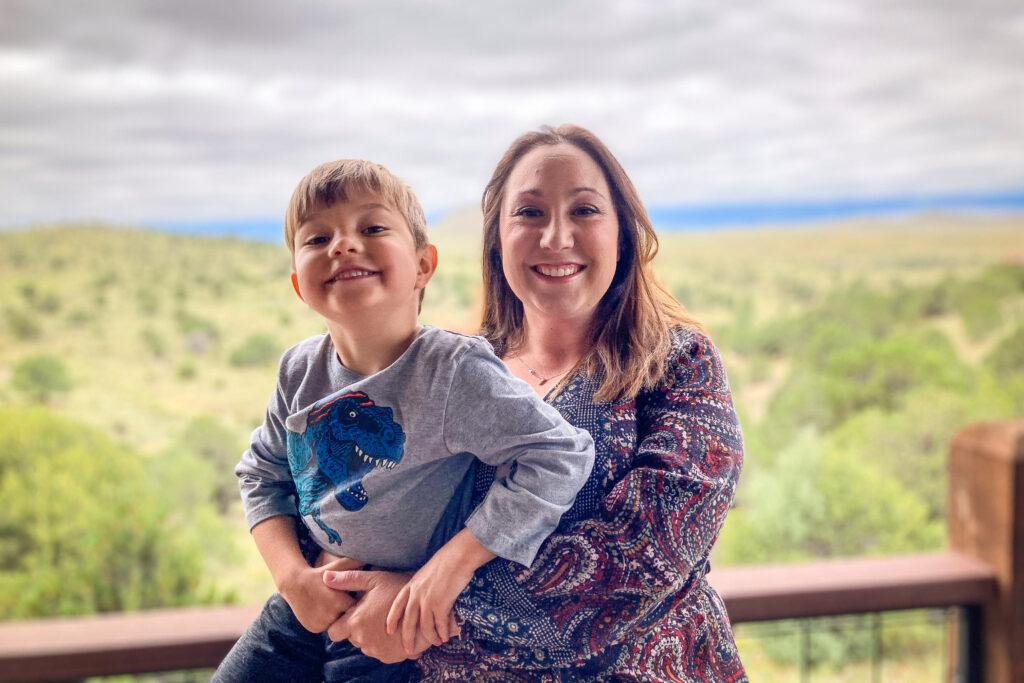
The higher pay led to less turnover, something Hutchinson valued. She said many Jewish child care centers in Colorado declined to participate because they would have operated at a loss.
The family tried to find a UPK-participating center in Denver that was close, had reliable staffing and could accommodate a toddler.
“Trying to get on lists for two children … we wouldn’t have gotten care for three years,” she said.
What Hutchinson dislikes about the UPK system is she said it pits parents against centers. If a center doesn’t offer UPK, it risks losing parents and puts the center at fault if the system isn’t rolled as well. If parents leave their center looking for a UPK provider she fears the system “will harm low-income families most, as people scramble to find participating centers in an already competitive market.”
While most parents agree that the rollout happened too quickly and places too much of a burden on providers, they hold out hope that one day Colorado can truly invest in a universal, full-time system that adequately pays caregivers.
“I see hope in the universal pre-k,” said Hutchinson. “Finally, good things are happening. But I also am ready for more of a sea change and the values need to add up to people. That’s the shift that needs to happen.”








